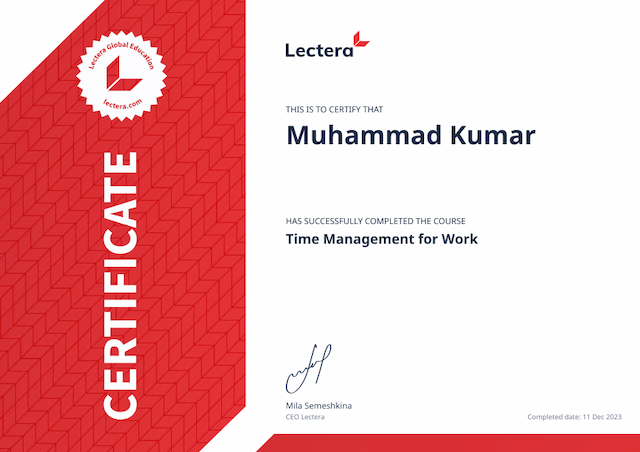Lesson 1. Time management objectives
16:57 min
3 additional material
1 quiz
1 case
Being skilled in time management means using your time in line with your personal and work goals. It is the goals that give you an understanding of the final results and motivate you to move forward. In this lesson, we will discuss the concept of time management.
In the additional materials, you will find the Circle of Concern and the Circle of Influence. You will be able to fill it out using challenging topics and questions that you think about most often. Furthermore, you will study four time management techniques that will free up 50% of your working time.
